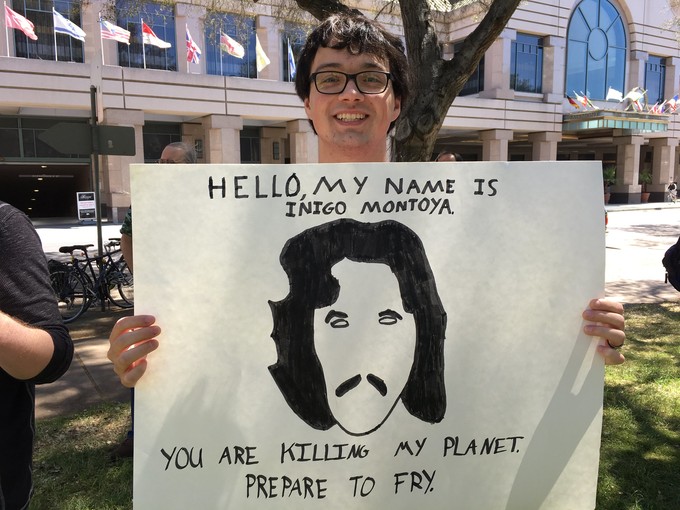What does national security mean without climate security?
By
Lindsay Koshgarian
Posted:
|
Climate Change,
Military & Security

Photo courtesy of Flickr.
“You keep using that word. I do not think it means what you think it means.”
-Inigo Montoya, The Princess Bride
This country’s spending on the Pentagon and nuclear weapons is done in the name of “national security.” Not to mention the billions more for “homeland security,” largely in the form of immigration enforcement, deportations, and border militarization. Much of that money makes the world more dangerous for many, without promising security to the rest of us.
Meanwhile, thousands of people in Florida and Puerto Rico are without basic security after Hurricane Ian, having lost power, homes and loved ones to the latest in the string of extreme weather events that have grown more frequent and more devastating due to climate change.
If national security spending doesn't address these threats, then what do the words “national security” even mean?
Thanks to the unyielding work of activists, the U.S. has just committed to our first major investment in getting off fossil fuels. The Inflation Reduction Act is far from perfect, but it represents a huge win for climate activists, humankind, and the planet.
One of its biggest imperfections is that it simply isn’t enough - after decades of inaction, we need more, and faster, investment to end our dependence on fossil fuels and to promise the resilient energy grids and infrastructure that can provide security during the extreme weather events of our new era.
And yet, as the Senate prepares to consider their version of the National Defense Authorization Act this month or next, they’re poised to add $65 billion to a Pentagon and nuclear weapons budget that’s already 21 times the annual climate investment of the Inflation Reduction Act.
All this in the name of “national security.” Maybe it doesn’t mean what they think it means?